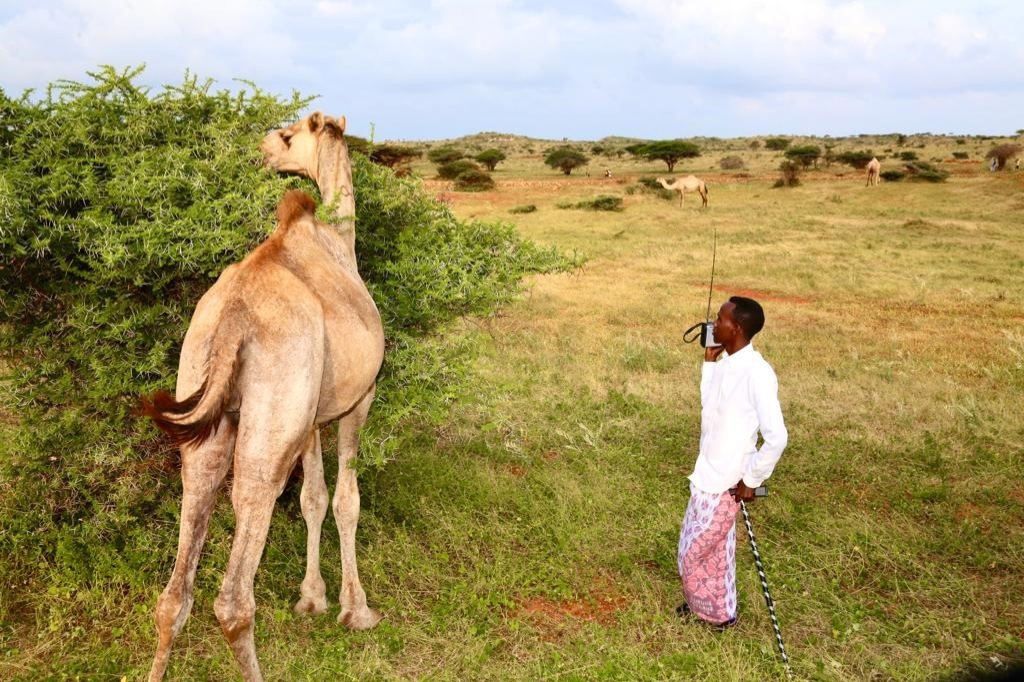
Sharmarke’s Life in the Mudug Plains; A Masaafo Short Story

The windswept Mudug savannah was a harsh home for a young nomad named Sharmarke. He had made his way through life with a sharp wit and adaptability to survive in its most hostile of climates. It was here, from a young age, that he learned the art of survival. Here, in the wide-open wilderness, he acquired the cunning wit needed to find sustenance and triumph in conflict.
From a young age, Sharmarke was exposed to the harsh truths of their traditional ‘geeljire’ life. Brought up in an environment where migrating in search of pastureland and safeguarding livestock had always been the norm, the youth’s worldview was indelibly shaped by his family’s experiences. Although his universe was tough, it allowed him to grow wise far beyond his age, making the conflicts that he faced bearable.
He was only seven when a neighbouring clan came for his eldest sister’s hand in marriage. The sight of it all must have filled him with a sense of awe. Not fully grasping everything that was going on, Sharmarke must’ve watched in wide-eyed wonder as the caravan of Samdad arrived on horseback with a dowry of camels and sheep. It was a rare privilege for him to witness such an ancient display of tradition; the gleaming metal of the ‘waran’ spears and shields, colourful cloaks and regal demeanour must’ve been a spectacle that was to linger in his mind for years to come. All around him, people bustled about celebrating and feasting.
But winds of change were to blow away his newfound sense of worth. One day, he noticed one of his older sisters engaging in conversation with a young man. His suspicions were aroused by her peculiar tone of voice – there was something more than politeness which lay underneath her words; the nuance went over the head of the seven-year-old, but he understood exactly what their intentions were. Despite having a bad feeling about it, he stepped back – this had been a matter already decided before he even saw them talking.
Life for the Somali tribes of the central plains was often difficult for young men struggling to make a living. With little to no money and livestock of their own, they found themselves unable to marry girls in the traditional way – where dowry payments were required. Yet out of this desperation, a new practice emerged. The act of ‘Masaafo’ was born, the idea that two love-struck young people should be able to wed each other despite all odds, by running away together and making use of a concession in Shafi’i Sharia Law.
In regular circumstances, a Muslim man looking to wed must receive sacred consent from the female’s male guardian. This can be her father, adult brother, or other close relatives. Most of the time it is ensured that the bride’s family give their blessing. If, however, a woman lives in a distant valley where none of her relatives resides, then an alternate male guardian rule permits the mayor or cleric of the faraway town to give the blessing as ‘Wali’. It was the manipulative use of this concession that became known as Masaafo, quickly becoming a norm among lovers who were incapable of following the traditional process.
Roaming around the huts of the watering place, Sharmarke had heard nearby families talking and complaining of this practice. Although he didn’t know exactly what it entailed, he knew the consequences of its success. If his sister were to run away with her suitor, not only would they be risking their safety, but the generous dowry expected would also go down the drain. After much thought, he hatched a plan. Sneaking behind the acacia trees, he listened in on their intimate conversations.
Hours later, when it was time for the family to sleep in their hut, he slipped into the dark night and cut a piece of his loincloth for a makeshift knot to attach to his sister’s dress. By doing this, he hoped to be awoken when she tried to make her escape. He prayed that this would be enough to prevent her from going against their family’s wishes. But the young man and his bride-to-be were not so easily caught. They noticed the boy’s feeble trick and simply untied the pathetically fastened knot.
The little brother awoke the next morning frustrated that his counterplot had miserably failed. His sister successfully ran away and started a family with the poverty-stricken man who was also a kinsman of his, bound by blood. Their love triumphed over their unfortunate circumstances, making them an example of courage and dedication against all odds. Sharmarke felt deep indignation while watching the events unfold before his very eyes.
His older sister, beautiful and fair-skinned, had forsaken the aspirations of their parents for a more affluent life to devote herself to somebody who could not guarantee the basics for her. All of their hardships in life vanished as his sister was taken by her passion without regard for the apprehension of his parents. The boy’s heartfelt immense sadness for the two people he respected most, and deep down held a profound grudge against his beloved sister. Somewhere distant, at least 90km away in accordance with ‘Masaafo’ validity in Shafi’i Shariah Law, his sister married in a humble rite among strangers in calmness. No adornment or joy; only desolation and longing.
Decades passed by. The family had grown exponentially over the years, with both of his sisters having several adolescent sons. The shame that Masaafo brought upon them no longer mattered: the family turned into a strong and powerful unit, capable of enjoying the scarce joys their residence in the Mudug plains could provide. A land that could be a Garden of Eden during the rainy season and a deathbed during drought.
One fateful day, their bliss was no longer. War broke out and no one in the family was exempt from its effects. His eldest sister’s sons – the product of the pompous festival – shockingly saw this as an opportunity, wilfully ditching bonds with their maternal kin. With no sense of shame, he declared that it was merely a battle between two other clans, the Sulmidaan and the Marwaaniyaan – and none of their business in fact.
The lack of respect for those once close was starkly evident in the outright refusal to come to help. It was an utter betrayal… one that none of them would ever forget. But the younger of the two sisters’ – the girl who ran away – came with a positive surprise this time. Her three sons reacted differently. They fought bravely to defend their maternal next of kin like stalking lions unafraid of mortality.
Sharmarke, now a grown man, was amazed and pleased with his brave nephews’ partaking in the battle the way they did. Defending his blood as if he were their father. Laughing to himself, he said: “I’m glad that my trick of yesteryears with the cloth was detected and foiled. I wouldn’t have had these brave nephews defending my life today.”
As the dust settled on the blood-stained plains, he realised that a marriage to a dear next of kin who may be poverty-stricken is better than a distant stranger who showers your family with many gifts. He came to learn that a marriage with next of kin could be more enriching and rewarding than any lavish dowry or material possession given by a stranger could ever rival.
Even as the scorching sun beat down on him and the acacia trees nodded solemnly, he understood that traditions were not only built off finances but with true love, loyalty and companionship. A young boy grew up here, in this unforgiving land, transforming into a wise man filled with knowledge and appreciation. Sharmarke came to understand the true meaning of family and tradition.
- Tags: Marriage, Masaafo, Mudug, Nomadic life, Short Story
Mohamed Warsame
Related News




Somalia’s Single-Use Plastic Bag Ban Was Long Overdue

Election in Puntland: A Historical Overview


Somalia at COP28 Recap: Key Highlights and Outcomes

Breath of Fresh Air: The Force Behind Mogadishu’s Newfound Security

